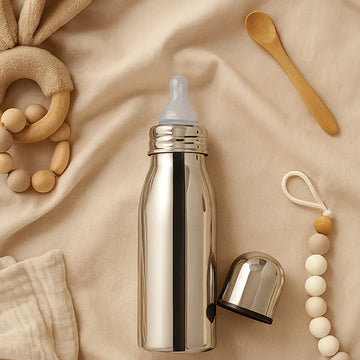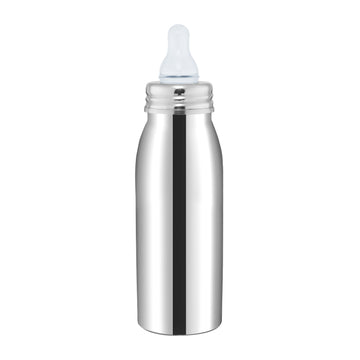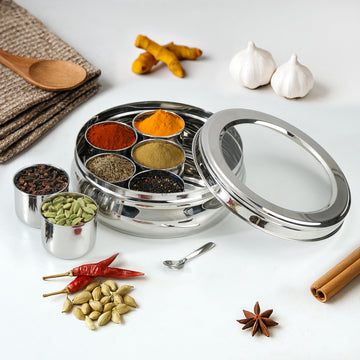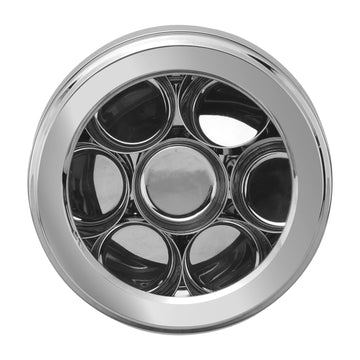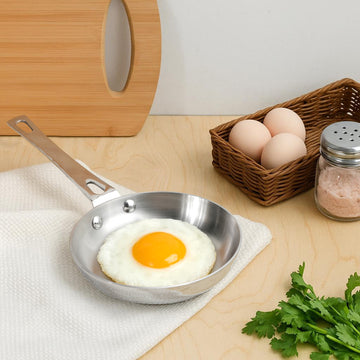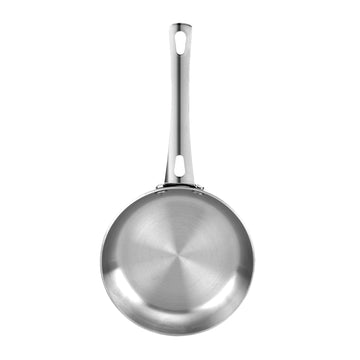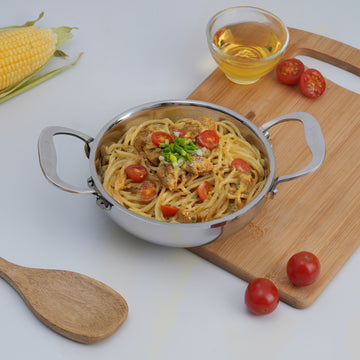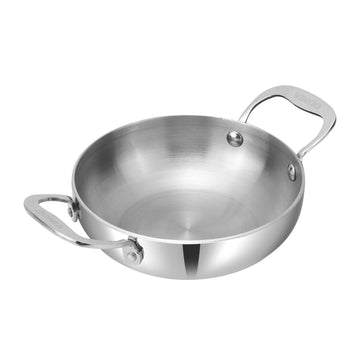Uses and Care Of Hard Anodised Cookware

“ ALL YOU NEED TO KNOW ABOUT HARD ANODISED COOKWARE.”
Durability is the name that is synonymous with hard anodized cookware. Aluminium which undergoes the process of being submerged into an acidic bath and is eventually subjected to a series of electrical charges results in hard anodized cookware that is 30% harder than stainless steel. This process of anodization where the aluminium is subjected to the process of natural oxidation enables the surface to get hardened and resistant to corrosion thus making it resilient and non-reactive. Yes the hard anodised cookware is totally non-reactive and refrains from reacting with acidic food items. So this process of anodization creates a shield and locks the aluminium and negates the possibility of leaching while cooking food items like tomato puree or lemon juice.
Let us now look at some of the steps that can be followed in order to use and care for your Hard Anodized Cookware.
CLEANING - Cleaning of the surface of the hard anodized cookware is really simple however there are a few things that we need to avoid. Refrain from using hard detergents and metallic scrubbers on the surface of the cookware, we often believe that since it is not a non-stick surface we can be careless when it comes to choosing the right scrubber. Use a mild detergent and a soft-bristle sponge while cleaning the inner surface of your hard anodized Kadai or hard-anodized pan. In case of the build-up of strong residue, while cooking, you can soak the cookware in a solution of warm water which will help in removing these stubborn stains effortlessly.
Frequently asked questions related to hard anodized cookware
- Is it safe to put my hard anodized cookware in a dishwasher?
In case of all hard anodized cookware as well as non-stick cookware, it is always recommended to hand wash them rather than use a dishwasher. In order to have an extended lifespan of your cookware, washing with a mild detergent is the best practice.
- Can hard anodized cookware be used on an induction?
Yes hard anodized cookware is available in both inductions as well as non-induction versions which make it appealing for both the users. So irrespective of whether you're using a stove or an induction top the hard anodized frying pan or hard-anodized handi can be used in all kitchens.
-
Is daily cooking in Hard anodized cookware safe for my health?
Yes the hard anodized cookware is absolutely safe for your health and well being, it is made by chemically treating aluminium, where the metal is sealed and does not come in direct contact with the food being prepared. Another advantage of using this cookware is that it does not release any kind of foul toxins into the food.
-
Does hard anodized cookware consume less fuel?
Yes the hard anodized cookware heats up much faster since the aluminium used is a good conductor of heat, it retains the heat as well for a longer time frame. This enables us to use less fuel which would normally be consumed to cook the same dish in another cookware. So we are contributing in our own small way by conserving energy by using the hard-anodized cookware.
- Is Hard anodized cookware economical?
Yes, contrary to the illusion the hard-anodized tope or the hard-anodized saucepan is rather economical. It is very long-lasting and looks the same even after being used for years on end. So, in short, we pay a small amount for cookware which will have a long life span, so minimum payment and maximum usage.
Hard anodized cookware is very popular these days since it’s extremely durable and economical as well. The even distribution of heat while cooking makes it an absolute winner since in today's fast-paced world, we end up saving those precious moments. The only drawbacks of this cookware is that it isn't dishwasher friendly. But the fact that it’s super sturdy and it's surface never chips or peals gives home chefs adequate reasons to stock up on this resilient cookware. So go out there and get one of your own aluminium beauties and let your kitchen sparkle.

